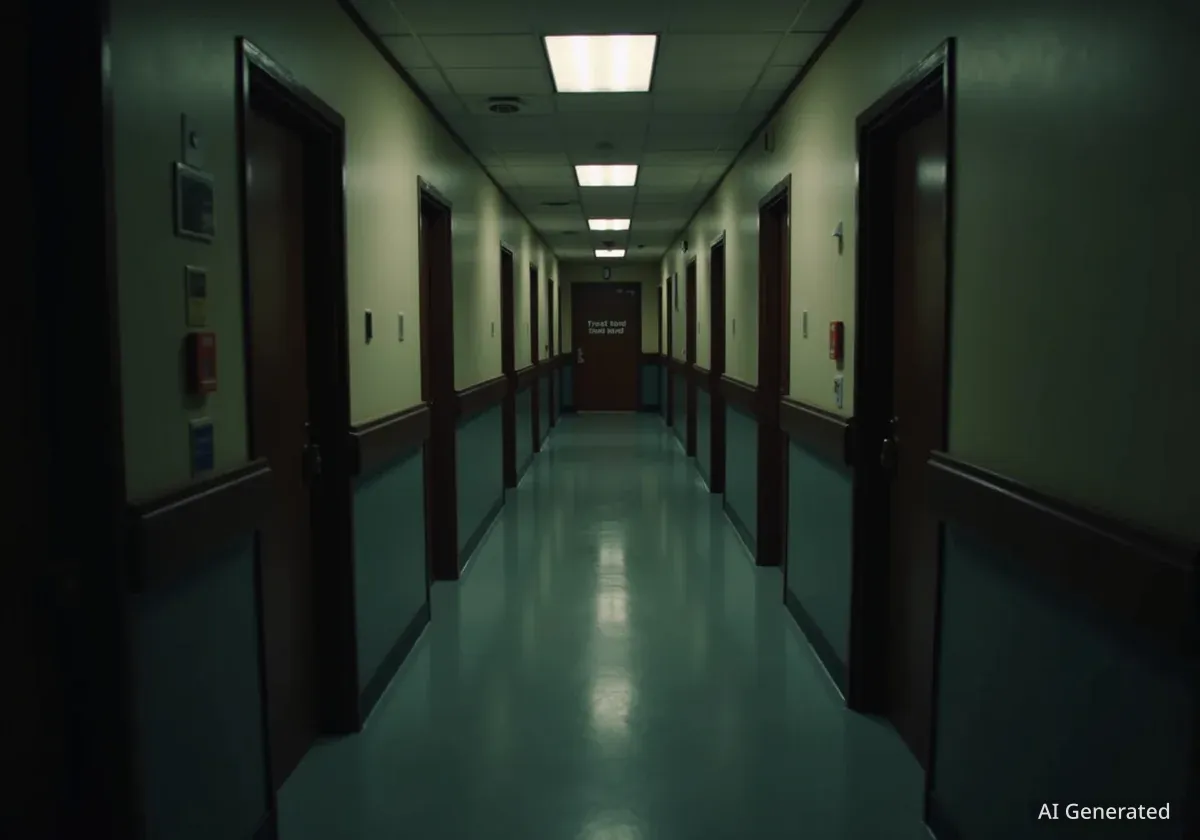Caregivers for adults with disabilities in four Connecticut towns have initiated a strike, demanding increased contributions to their pension fund. Employees of Network Inc., Caring Community, and Alternative Services Inc. in Colchester, Manchester, Andover, and Vernon began picketing after negotiations for greater pension security stalled.
The central issue is a request for a 0.2% increase in the company's contribution to the employees' pension plan. The union representing the workers, SEIU 1199NE, has warned that without this adjustment, the pension fund is at risk of default, which could significantly reduce retirement benefits for its members.
Key Takeaways
- Caregivers in Colchester, Manchester, Andover, and Vernon are on strike.
- The workers are demanding a 0.2% increase in employer contributions to their pension plan.
- Their union, SEIU 1199NE, warns the pension fund could default without the increase, potentially cutting monthly benefits.
- Employees state they are prepared to continue the strike until a formal agreement is signed.
Details of the Labor Dispute
Caregivers providing essential services to adults with disabilities walked off the job and onto the picket lines on Saturday. The employees work for three interconnected service providers: Network Inc., Caring Community, and Alternative Services Inc.
The strike action follows a breakdown in contract negotiations. The primary demand from the workers and their union is a modest but critical increase in the employer's funding of their retirement plan. They are seeking a new agreement that guarantees an additional 0.2% contribution to secure the fund's long-term stability.
Background on the Organizations
Network Inc., Caring Community, and Alternative Services Inc. are providers of support and residential services for adults with developmental and intellectual disabilities in several Connecticut communities. Their employees, often referred to as direct support professionals, assist with daily living, community integration, and personal care.
Union Warns of Potential Pension Default
According to representatives from the New England Health Care Employees Union, SEIU 1199NE, the current funding level for the pension is insufficient. The union projects that without the 0.2% increase, the fund is on a path to default.
A default would have severe consequences for the caregivers, many of whom have dedicated their careers to the field. Union officials stated that workers could face a reduction in their expected pension payments by several hundred dollars each month, jeopardizing their financial security in retirement.
"This is us trying to fight for what we can expect to receive when we retire from this job," said Nick Greer, a day services specialist participating in the strike.
The union's position is that the requested increase is a necessary measure to ensure the promises made to its members are kept. They argue that proactive funding is essential to avoid a future crisis for retired caregivers.
Workers Voice Concerns for Dignified Retirement
On the picket line, employees expressed their commitment to their clients while also emphasizing their need for fair compensation and a secure future. They described their work as a calling but stressed that passion for the job does not replace the need for financial stability.
Adam Barnett Ramus, a day service specialist with Caring Community, highlighted the emotional weight of the decision to strike.
"I love my individuals," said Ramus. "I love being able to work where I work and I just would love to be able to retire with dignity for myself and have others retire with dignity and provide for my individuals."
Ramus also pointed out that other companies in the same sector have managed to provide more stable retirement plans.
"There are plenty of other group home companies that are able to provide this fully vested, fully funded pension plan," he added, suggesting that the employers' refusal is not based on industry-wide inability to pay.
Strike Impact
- Pay: Striking workers are not receiving wages for the duration of the work stoppage.
- Benefits: Employees have confirmed that other benefits, such as their health care coverage, are not currently affected by the strike.
- Duration: Workers have expressed their willingness to remain on strike until an agreement is reached and signed.
Negotiations at an Impasse
The strike began after a deadline for a new agreement passed without a resolution. According to the workers, a deal was supposed to have been reached by midnight on Friday, but the employers did not sign off on the proposed terms.
"At midnight tonight is when this deal was supposed to be reached," Greer said on Saturday morning. "And we want to see an agreement. We want to see that signature, so that we can get back to our regular schedule."
The employees' resolve appears firm. They maintain that the strike is a last resort to secure what they see as a fundamental component of their compensation. The work stoppage affects services in four towns, raising concerns about the continuity of care for the vulnerable adults they support.
As the strike continues, both sides remain in a standoff. The caregivers and their union are holding firm on their demand for the 0.2% pension contribution increase, framing it as a non-negotiable element for their long-term financial health and a matter of retiring with dignity after a career of service.





